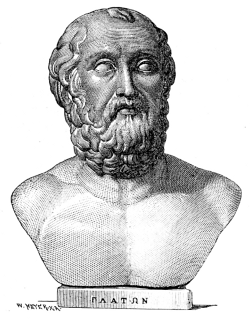
Said Plato: “These things that we feel
Are not ontologically real,
But just the excresence
Of numinous essence
Our senses can never reveal.”
— Basil Ransome-Davies

Said Plato: “These things that we feel
Are not ontologically real,
But just the excresence
Of numinous essence
Our senses can never reveal.”
— Basil Ransome-Davies
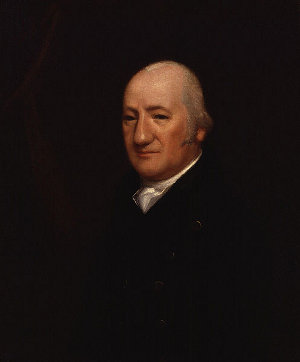
English historian Robert Blake called Henry James Pye “the worst poet laureate in English history with the possible exception of Alfred Austin.” That’s low praise indeed: Austin’s Randolph: A Tale of Polish Grief purportedly sold 17 copies; he is remembered for the stirringly titled “Go Away, Death” and for a breast fixation in which poetic mammaries open doors and plough the brine.
Elevated probably as a political favor, Pye was roundly criticized for his birthday odes, which were set to music by the court composer. “It is said that the words were often drowned by the instruments,” noted William Forbes Gray. “Certainly, it was a consummation to be devoutly wished”:
God of our fathers rise,
And through the thund’ring skies
Thy vengeance urge
In awful justice red,
By thy dread arrows sped,
But guard our Monarch’s head,
God save great George.
To the loud trumpet’s throat
To the shrill clarion’s note,
Now jocund sing.
From every open foe,
From every traitor’s blow,
Virtue defend his brow,
God guard our King!
Pye once said he would “rather be thought a good Englishman than the best poet or the greatest scholar that ever wrote.” In The Joy of Bad Verse, Nicholas Parsons observes that Pye’s epic Alfred was then “a credit to his sense of patriotism.”
“I must leave here,” said Lady De Vere,
“For these damp airs don’t suit me, I fear.”
Said her friend: “Goodness me!
If they don’t agree
With your system, why eat pears, my dear?”
— Anonymous
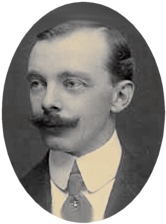
Harry Graham (1874–1936) led a successful military career and worked as a journalist and lyricist, but he’s best remembered for what might be called “dark light verse”:
Tender-Heartedness
Little Willie, in the best of sashes,
Fell in the fire and was burned to ashes.
By and by the room grew chilly,
But no one liked to poke up Willie.
Aunt Eliza
In the drinking-well
(Which the plumber built her)
Aunt Eliza fell–
We must buy a filter.
Waste
I had written to Aunt Maud,
Who was on a trip abroad,
When I heard she’d died of cramp
Just too late to save the stamp.
Indifference
When Grandmamma fell off the boat,
And couldn’t swim (and wouldn’t float),
Matilda just stood by and smiled.
I almost could have slapped the child.
Compensation
Weep not for little Léonie,
Abducted by a French Marquis!
Though loss of honour was a wrench,
Just think how it’s improved her French.
Mr. Jones
“There’s been an accident,” they said,
“Your servant’s cut in half; he’s dead!”
“Indeed!” said Mr. Jones, “and please
Send me the half that’s got my keys.”
He wrote in one preface:
Fond parent, you whose children are
Of tender age (from two to eight),
Pray keep this little volume far
From reach of such, and relegate
My verses to an upper shelf,–
Where you may study them yourself.
I suppose I could try if I chose,
But the question is: “Can I suppose
I could choose what I chose if
I chose?” I suppose if
I chose to. But nobody knows.
— Anonymous
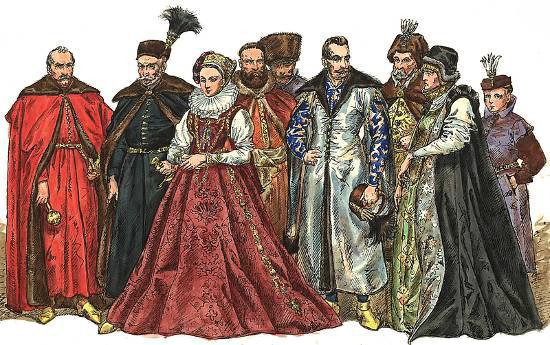
All persons of higher °
Are proud of a long pe°
And even the masses
Of inferior classes
Unless they are misle°.
— Cyril Bibby
“On being asked by an F.R.S. — no less — why modern poetry was so little inspired by Science. To the tune of The Bailiff’s Daughter of Islington.”
Now there once was a lass and a very pretty lass,
And she was an isotope’s daughter
And they called her Ethyl-Methyl, for her mother was a gas
Made of Ch17 and water.
She was built on such lines, perhaps parallel lines,
(For Einsten says they’ll never meet),
And her lips resembled the most delicate sines,
And her cheeks were like cosines sweet.
Her hair it was like transformers in a way,
And her eyes like two live coils,
While as for her spectrum, I always used to say,
“I could watch it till it boils.”
Though at making of love I never was a dab,
We were soon on the best of terms,
In fact the first time that I saw her in the lab,
We generated n2 therms.
Her metabolisms I shall never forget
Nor her parallaxes till I die,
But the sad thing is that, whenever we met,
The sparks they used to fly.
Alas and alack! it was ever, ever thus;
We had perforce to part,
For she — she was a minus, and I — I was a plus;
In fact we were poles apart.
Still, Scientists all, I am sorry I was wrong,
And ±0.3
With the Higher Hydrocarbons now shall decorate my song
Instead of the willow-tree.
— Sir J.C. Squire, in Punch, 1936
No need for confusion if we but recall
That Easter on the first Sunday after the full moon following the vernal equinox doth fall.
— Justin Richardson
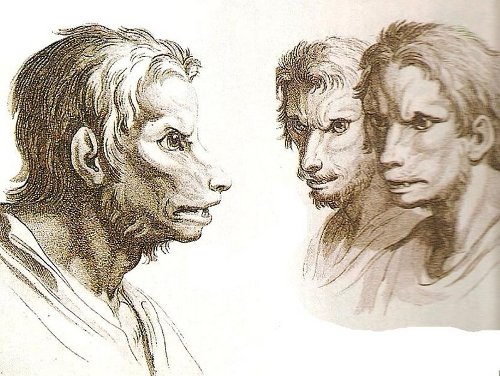
One night an errant Werewolf fled
His wife and child and visited
A village teacher’s sepulchre
And begged him: “Conjugate me, sir!”
The village teacher then awoke
And standing on his scutcheon spoke
Thus to the beast, who made his seat
With crossed paws at the dead man’s feet:
“The Werewolf,” said that honest wight,
“The Willwolf — future, am I right?
The Wouldwolf — wolf conditional,
The Beowulf — father of them all!”
These tenses had a pleasing sound,
The Werewolf rolled his eyeballs round,
And begged him, as he’d gone so far,
Add plural to the singular.
The village teacher scratched his head;
He’d never heard of that, he said.
Though there were “wolves” in packs and swarms,
Of “were” could be no plural forms!
There werewolf rose up blind with tears
— He’s had a wife and child for years!
But being ignorant of letters
He went home thankful to his betters.
— Christian Morgenstern
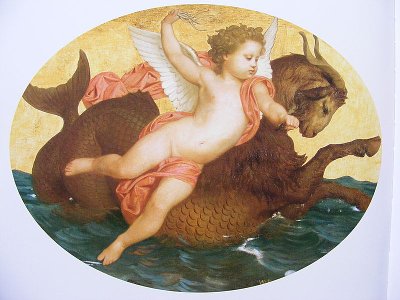
An amorous M.A.
Says that Cupid, the C.D.,
Doesn’t cast for his health
But is rolling in wealth —
He’s the John Jaco-B.H.
— Anonymous